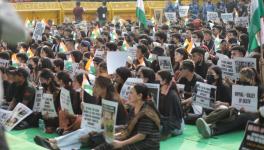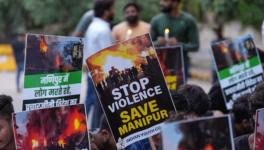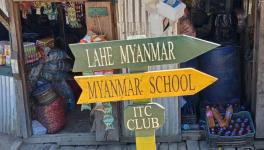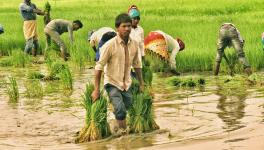Manipur: Peace Day Appeal on May 3 by Thadou Community Asserts its Non-Kuki Tag
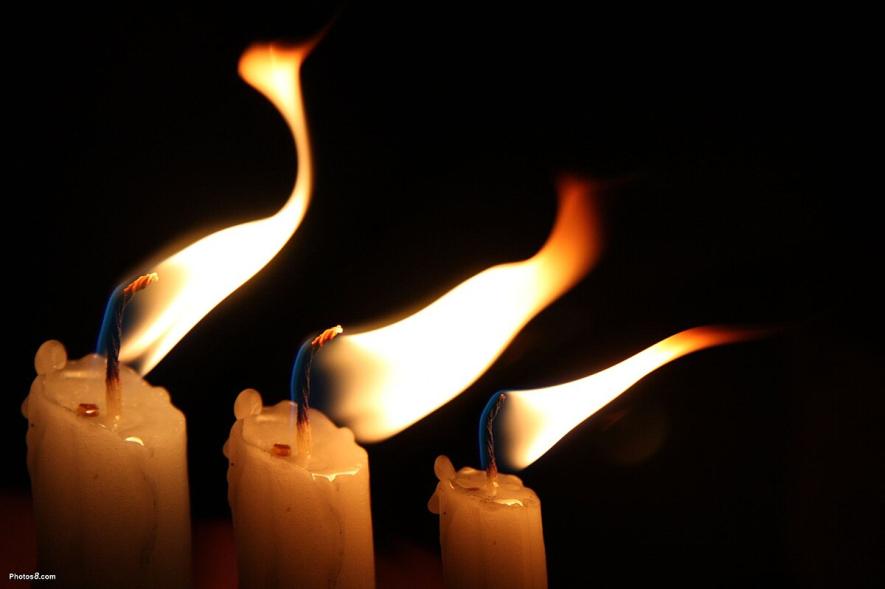
Image credit: Wikimedia Commons/Sam Mugraby, Photos8.com
Kolkata: A call for peace and observance of May 3 in Manipur as ‘Peace Day’, perhaps, did not receive as much as attention as it should have because appeals to commemorate the day as ‘Separation Day’ and ‘A Day of Remembrance and Reflection’ dominated the narrative on the occasion in the strife-scarred state. May 3 marked the second anniversary of the outbreak of an ethnic conflagration between the majoritarian Meiteis, who inhabit the Valley, and tribal Kuki-Zos, who have dominating presence in the Hills. It was on May 3, 2023 that ethnic violence broke out on the issue of ST (Scheduled Tribes) status for the Meiteis.
The tribal community, which appealed for observance of May 3 as ‘Peace Day’ goes by the nomenclature ‘Thadou’. The appeal to mark May 3 was issued on May 1 under the banner of Thadou Inpi Manipur (Tim) under the signature of the organisation’s joint general secretary Manggou Thadou. The community has two other frontal outfits – Thadou Students’ Association (TSA) and Thadou Community International. Tim’s appeal contrasted with the ‘Separation Day’ call of the Kuki-Zos and the plea to treat May 3 as a ‘Day of Remembrance and Reflection” of the Meiteis.
In both these calls, what is evident is the implicit attempt to advocate the respective political lines. The Meiteis want Manipur to remain integrated as it is now, while the Kuki-Zos want autonomy in a format the Constitution permits. The domination of the Meiteis is just not acceptable to them anymore.
In fact, the ‘Peace Day” idea is a year-old, as on the first anniversary commemoration of May 3, observed under the banner of TSA, it was clarified that the community was drawing inspiration from Japan’s commemoration of the Hiroshima bombing and that country’s call to denounce war and to work for international peace.
Tim has emphasised that it is urging people to pursue the peace objective seriously and promote community understanding despite the fact that the Thadous have had to suffer immensely during the prolonged duration of the ethnic conflict; but they remained silent and proved their resilience.
Respect among all indigenous communities, “who call Manipur their home” is a pre-requisite that has no alternative. The operative and politically significant portions are: …. ‘Who call Manipur their home’ and ‘indigenous communities’. A paragraph captioned ‘Statement’ with which the organisation’s official statement closes, throws some light. The ‘Statement’ also forms part of Tim’s clarification on the Kuki-Zo referendum suggestion. The clarification was issued under the signature of Tim’s president M James Thadou.
The ‘Statement’ reads: “Thadou is a distinct ethnic group of people. Thadou is not Kuki, or underneath Kuki, or part of Kuki, but a separate, independent entity from Kuki. Any organization that incorporates Thadou bur espouses Kuki and misportrays thadou as Kuki or a part of Kuki is illegitimate and does not represent Thadou people and interest”.
When around early and mid-March, an apex Kuki-Zo outfit was preparing for a referendum on their demand for a separate administration in the format of a Union Territory, or any other arrangement admissible under the Constitution, Tim issued an advisory saying if any Thadou community member had received an invitation to participate the proposed referendum, the member must not respond and if this advisory is violated, Tim would not be responsible for “any consequences” that follow.
Tim’s advisory also emphasised that the Constitution of India does not permit any organisation or group to conduct a referendum within the sovereign territory of India unless expressly authorised by an act of Parliament (Tim referred to the apex outfit as ‘so-called’ Kuki-Zo Council and observed that its referendum move sounded more like an attention-seeking political or media stunt).
Thadou is one of the indigenous communities of Manipur having been recorded only as Thadou without any prefix or suffix in the official ST gazette or orders and all censuses since the first Indian Census in 1881 and the latest Census in 2011, with a population of 2.16 lakh.
“There should be no confusion between Thadou and Kuki as they are neither the same nor one being under or above the other”, said Tim, further stressing that Kuki is not an ethnicity nor the name of an ethnic or cultural group, but a “politically-motivated vested interest group with extremist ideology, designed and created for supremacy and control, particularly over the local indigenous communities. There is no Kuki other than the controversial ‘Any Kuki tribes’ entry -- # 33 – in the 2003 ST list of Manipur. There is a real need to understand what is Kuki and who are Kukis when none of the original 29 recognised tribes of Manipur identify as Kuki, but all firmly reject Kuki identity”.
The Manipur government recommended to the Union government for the second time in February 2023, seeking deletion of the entry ‘Any Kuki tribes’ from the Manipur ST list. This is important for the protection of Manipur’s indigenous communities and to address the longstanding concerns over illegal immigration and India’s national and border security issues, it said.
So, Tim’s appeal for peace and promotion of community understanding has to be seen in the light of its stance toward the Kuki-Zos, as also its assertion that the Thadous should not be equated with Kukis, but treated as a tribal community with a separate, independent identity. Will this stance pose a challenge for the authorities that are now according priority to reconciliation? Time alone will tell whether their view prevails or adds to the puzzle.
Judging by the stance of the Thadous, as articulated by Tim, there appears to be a tiff between them and the Kukis, which has its origin in Myanmar, where the Thadous are recognised as a native ethnic group, while the Kukis are not a recognised group.
In Manipur, with numbers on their side, the Kukis along with the Zomis and the Hmars, are a force to reckon with. The Thadous are on a weak wicket in the North Eastern state vis-à-vis the Kukis. That also explains why the Kukis are called for discussions both by the state government and the Centre. Therefore, the Thadous also harp, as do the Meiteis, that Kukis are “illegal immigrants” from Myanmar, who carry on “illegal activity” in Manipur. This situation possibly explains why the Meiteis do not speak against the Thadous, and the latter also do not say anything against the Meiteis. In fact, on this count, there is a convergence of views between ex-Chief Minister N Biren Singh and the Thadous.
If the Meiteis succeed in suppressing the Kukis, as at present, on the plank of they being illegal immigrants, the position of the Thadous will considerably improve in Manipur. It appears the Thadous want Manipur to remain integrated, as it is now. Which is also the stand of the Meiteis.
For the record: In an after-edit in The Hindu of May 16, 2025, under the heading ‘The paradox of the approach to the Manipur issue’, Prof Kham Khan Suan Hausing of the political science department of the University of Hyderabad, has observed: “A halting, yet incremental return to normalcy may, however, impel serious political engagements with rival stakeholders in ways that simultaneously accommodate legitimate demands and promote trust and legitimacy to state institutions. ........ breaking the political impasse and stabilizing law and order require substantive policy reorientations that transcend political optics and regime consolidation” (Hausing is also an honorary Senior Fellow at the Centre for Multilevel Federalism, Institute of Social Sciences, New Delhi).
The writer is an independent journalist based in Kolkata, West Bengal.
Get the latest reports & analysis with people's perspective on Protests, movements & deep analytical videos, discussions of the current affairs in your Telegram app. Subscribe to NewsClick's Telegram channel & get Real-Time updates on stories, as they get published on our website.













